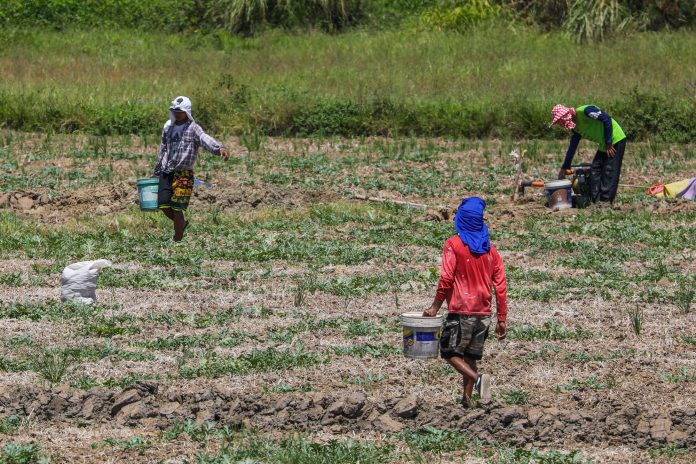President Ferdinand Marcos Jr. must address his concurrent duties as Agriculture Secretary. Since his July inaugural, he has attended more parties, fiestas, and car races than the two days he showed up at the Department of Agriculture. Foods are becoming scarce and costly. Yet he’s wasting time devising a silly, sleazy Maharlika Investment Fund.
In assuming the agriculture portfolio, Marcos Jr. gave food security the cruciality it deserves. There are things a president can do that a Secretary can’t, he said.
So do it – now.
Breaks in the supply chain result in food scarcity and exorbitance. A president can re-link that chain at cabinet level: transportation, trade, public works, local governments, law enforcement, health, budgeting, technology, communications, energy, Customs, internal revenue, education, skills training, environment.
Exemplify agricultural smuggling. Contraband yellow onion retails online for PhP400 a kilo. Imported pompano and salmon, intended for canneries and restaurants, are diverted to public markets.
Department of Agriculture bureaucrats can only do so much. They’ve designated an assistant for inspectorate and enforcement. Also, temporarily stopped issuing sanitary/phytosanitary inspection certificates (SPSIC). Then, warned buyers that uninspected onion and fish can sicken them.
Who knows what harmful chemicals were used to grow and preserve smuggled foods? It’s like scavengers eating “pagpag” leftovers from garbage bins.
A president overseeing agriculture can do more. He can prioritize Customs crack down on agri-smugglers. Food producers identified 12 new contrabandists, aside from two dozen in a Senate inquiry last May. Nail them all.
Other possible presidential orders: Trade officials to pinpoint traffickers’ warehouses. Coastguards to defend commercial and municipal fishers against marauding Chinese maritime militia trawlers. Public works to pave more roads from fish ports to markets, and construct irrigation. Commercial attachés to arrange food cargo screening at overseas ports of origin. Health and technology experts to set up SPSIC facilities in domestic ports. Transport, local governments, and policemen to speed up food flow. Environment officers to stop mountain quarries from spewing mud onto lowland farms. And more.
Two actions have long been proposed to Marcos Jr. One, revive the anti-agricultural smuggling council. This consists of private leaders in fisheries, aquaculture, poultry, piggery, grains, sugar, and vegetables. Like before, it shall report regularly to the president. Customs colluders with smugglers can be foiled. Prosecution of culprits will be monitored.
Two, ensure cheap fuel and electricity for food producers. Diesel is half the operating cost of commercial and municipal fishers. They’d rather not sail long distances on moonlit nights at slightest weather disturbance than spend big on fuel for measly catch. With fuel subsidies they can fill up wet markets with seafood.
Unaffordable diesel discourages pump irrigation. Fields run dry. Energy officials must come to the rescue of farmers.
Electricity is 40 percent of poultry, cold storage and grain milling. Generation rates are soaring due to costly imported coal.
Meddling recently in an Appellate Court case, Marcos Jr. implied that one generator must absorb multibillion-peso losses from imported coal instead of slightly raising charges on consumers. In which case he must make the 17 other coal generators nationwide, including those who advise him on the economy, to halve their rates and match that one generator.
With cheap electricity, planters can mechanize and modernize harrowing, planting, harvesting, drying, milling, and cold storage.
Marcos Jr. can do all that if undistracted by the Maharlika bill. If he certifies it as urgent, as congressmen ill-advised, he has to contrive a calamity and emergency. A risky political gamble in lieu of agriculture.
Jarius Bondoc is an award-winning Filipino journalist and author based in Manila. He writes opinion pieces for The Philippine Star and Pilipino Star Ngayon and hosts a radio program on DWIZ 882 every Saturday. Catch Sapol radio show, Saturdays, 8 to 10 a.m., DWIZ (882-AM).
The views expressed in this article are the opinions of the author and do not necessarily reflect the editorial stance of LiCAS.news.









